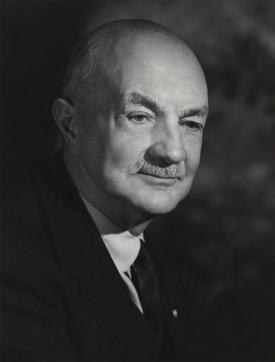J. R. M. Butler facts for kids
Quick facts for kids
Sir James Montagu Butler
|
|
|---|---|
 |
|
| Born |
James Ramsay Montagu Butler
20 July 1889 Cambridge, England
|
| Died | 1 March 1975 (aged 85) |
Sir James Ramsay Montagu Butler (born July 20, 1889 – died March 1, 1975) was a very smart British person. He was a politician and also a university professor. He even served in the military during both the First and Second World Wars!
He was a Member of Parliament for Cambridge University for a short time. Later, he became a top history professor at the University of Cambridge. He also helped lead Trinity College, Cambridge.
Contents
Sir James Butler: A Life of Learning and Service
Early Life and Education
James Butler was born in Cambridge, England. His father, Henry Montagu Butler, was the head of Trinity College, Cambridge. His mother, Agnata Frances Ramsay, was also very intelligent. She achieved the highest marks in a difficult Classics exam at Cambridge University.
With such a smart family, James went to Harrow School. Then he studied at Trinity College, Cambridge, just like his father. He was an amazing student! He won many awards for his studies. He earned top grades in both Classics (ancient Greek and Roman studies) and History. He was also the president of the Cambridge Union Society, which is a famous debating club.
Military Service in Two World Wars
When the First World War started in 1914, James Butler joined the Scottish Horse. This was a special army group that rode horses. He served in the Middle East, including the Gallipoli Campaign and Egypt. Later, he worked in the War Office, helping to plan military operations. He also served with the British forces in France. For his brave service, he was given an award called the Officer of the Order of the British Empire (OBE). He was also mentioned in official reports twice for his good work.
Years later, during the Second World War, James Butler returned to the army. He joined the Army Intelligence Corps. He helped recruit many of his former students to work on breaking secret codes at Bletchley Park. This was a very important job that helped the Allies win the war. From 1942, he focused on helping to set up new governments in areas freed from enemy control, especially in France.
A Career in Politics and Academia
After the First World War, James Butler went back to Cambridge. In 1922, he became a Member of Parliament for Cambridge University. This meant he helped make laws for the country. His biggest achievement was helping to pass a law that updated how the universities of Oxford and Cambridge were run. He lost his seat in the 1923 election to his cousin.
Even though his political career was short, his academic career grew. He became a tutor at Cambridge in 1928. Then he became a history lecturer in 1929, and a senior tutor in 1931.
After the Second World War, the Prime Minister, Clement Attlee, asked him to edit a series of books. These books were the official History of the Second World War for the United Kingdom. In 1947, he became the Regius Professor of Modern History at Cambridge. This is a very important and respected position. He held this job until 1954. He wrote two of the books in the history series, which were about grand strategy (big plans for the war). In 1958, he was given a knighthood for his work on these books. This meant he was called "Sir James Butler."
He retired from his professor role in 1954. The next year, he was chosen to be the vice-master of Trinity College. He held this important leadership position until 1960.
 | Kyle Baker |
 | Joseph Yoakum |
 | Laura Wheeler Waring |
 | Henry Ossawa Tanner |

